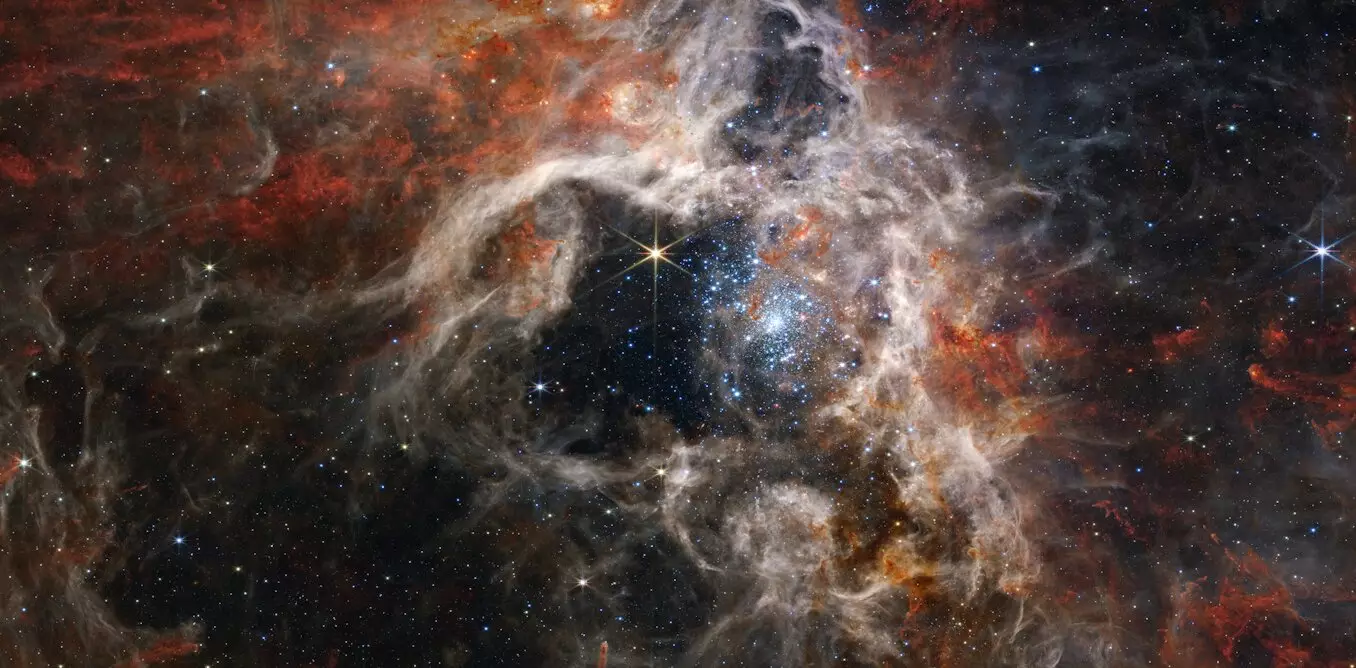Our universe, despite its apparent stability over the course of 13.7 billion years, is facing a concerning threat according to recent research. The culprit behind this instability? The Higgs boson. This fundamental particle, responsible for the mass and interactions of all known particles, plays a crucial role in shaping the very fabric of our cosmos. The existence of the Higgs boson implies the existence of the Higgs field, a universal force that gives particles their masses and interactions.
One of the key concerns raised by researchers is the potential for a phase transition in the Higgs field. Similar to the transformation of water into vapor, a phase transition in the Higgs field could lead to the creation of low-energy bubbles with entirely different physics within them. This could result in drastic changes in particle masses and interactions, ultimately leading to a universe with altered physics. While recent measurements from the Large Hadron Collider suggest that such an event may be possible, the timeline for such a catastrophe is estimated to be several billion years in the future.
To initiate a phase transition in the Higgs field, a significant external energy source is required. While fluctuations in the Higgs energy occur naturally, the formation of bubbles requires a substantial amount of energy. In the presence of strong gravitational fields or hot plasma, the Higgs field can borrow energy to form bubbles more readily. This raises questions about the extreme conditions following the Big Bang and whether they could have triggered such phase transitions. However, the stabilizing effects of thermal energy in the early universe suggest that the end of the cosmos was not imminent.
Researchers have identified a potential source of heat that could disrupt the stability of the Higgs field: primordial black holes. These unique black holes, thought to have emerged from the collapse of dense regions of spacetime in the early universe, could provide the necessary energy to induce phase transitions in the Higgs field. Unlike conventional black holes, primordial black holes could be incredibly light, potentially contributing to the destabilization of the Higgs field.
Through a combination of analytical calculations and numerical simulations, researchers have shown that the presence of primordial black holes could lead to constant bubbling in the Higgs field. However, the fact that we are still here suggests that such objects are unlikely to have ever existed. This conclusion raises doubts about cosmological scenarios predicting the existence of primordial black holes unless concrete evidence emerges in the form of ancient radiation or gravitational waves.
The research on the role of the Higgs boson and its potential destabilization of the universe opens up a myriad of questions about the nature of our cosmos. The discovery of evidence supporting the existence of primordial black holes would not only challenge existing theories but also hint at the presence of unknown particles or forces protecting the Higgs field. As we continue to explore the universe at both the smallest and largest scales, it becomes apparent that there is still much left to uncover about the mysteries of our existence.


Leave a Reply